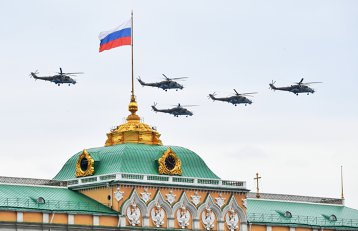
The World Economic Forum from Davos- Expectations partially confirmed

The annual meeting of the World Economic Forum from Davos marked some important absences from the highest level. The US, Russia, France or Great Britain’s leaders have missed the meeting, hence, the world’s community did not receive the essential answers related to how great powers’ chancelleries see the transition to 4.0 Globalization and world’s fourth industrial revolution. The current globalization form has intensified world’s division in the rich and the poor. Not surprisingly, instead of presenting some methods for taking down this situation, the representatives of the rich states have continued to support the benefits of the actual international relations system.
The annual meeting of the World Economic Forum from Davos took place between 22-25th of January 2019. The theme of the conference was: 4.0 Globalization: shaping a global architecture in the age of the fourth industrial revolution. Klaus Schwab, Founder and CEO of World Economic Forum, was saying before conference’s start: “we are just at the beginning of globalization 4.0, and are significantly unprepared for the magnitude of change we are facing. We are still approaching issues of globalization with outdated mindset. Tinkering without existing processes and institutions will not be enough. We need to redesign them so that we can capitalize on the abundance of new opportunities that await us, while also avoiding the kinds of disruptions that we are witnessing today”.
Many of those who walked Forum’s stage to express their opinion have confirmed that, in fact, the leaders of the states with globally important influential economic and security policies, as well as of businesses fields’ community, are not ready for world’s configuration in the fourth industrial revolution.
Moreover, instead of talking about the immorality of globalization’s current implementation method, which had worsen the breach between the rich states and the poor ones, the leaders of the rich states have actually applauded their achievements. They have proved, as expected, that morality is not something rich states have.
This was confirmed by the demonstrations, at low temperatures, of the protesters who militated for anti-globalization through anti-capitalist slogans. They were supported by socialists and ecologists. They were saying, through a 20 years old protester: “We want a better world, you do not get to decide for us”.
Mike Pompeo, Secretary of State was expressing, through Skype, in the absence of the US delegation from Davos, his satisfaction on Trump’s administration policy, which, following the “America Frist” principle, brought American people’s wealth. “The unleashing of animal spirits has allowed the U.S. economy to grow even as the global slowdown looms.” He did not mention anything about the effects of this policy over other states in the world and nothing about the US pullout from a series of treaties and agreements. Trump wants a new world order for the US not to spend money for other states’ security. Globalization is good, but only if it benefits the American people.
The German chancellor, Angela Merkel, was not that far from this position either, as she supported the current globalization process, giving Germany as an example for developing according to these principles. She mentioned that “leaders should follow the national interests of their states, but not forget that other states have their own interests too”. As a political statement, its theoretical validity can be contested. However, we cannot say the same about its implementation. We cannot forget the debates regarding a 2-3 speeds Europe and other concepts dividing the old continent.
In order to justify the economic arguments of North Stream’s pipeline construction, Angela Merkel underlines that, being forced to give up the nuclear energy and the one based on charcoal’s exploitation to respect its own commitments on the climatic changes, Germany needs energy. At the same time, it must face the challenges regarding the digitalization process’ intensification at all levels and the consequences of the demographic changes after the immigration process.
As for Brexit, the German chancellor is underlining that she is carefully continuing “the trade relations with Great Britain”, this way expressing her point of view on islanders pullout from EU as being a “fait accompli”, Germany aiming now for making some bilateral agreements between the two states. “All my efforts aim to make this happen correctly”.
Merkel is being quite firm in supporting the current system: “… I will defend the current international system against populist changes. We must go against them”. This way, she is indirectly showing her disapproval against Trump’s administration, who she considers to be populist, as well as against the radical nationalism from Europe. “I will strongly be in favor of the multilateral order not only inside EU, but also where a proper answer will be given to tomorrow’s challenges”, says the German chancellor.
China’s vice-president, Wang Qishan, held an important speech as well. He sees globalization as an “inevitable trend of history which, instead of refusing it, the world should take collective actions to face its challenges”. Wang draws the attention on the fact that China should not be considered as the responsible for world’s undeveloped states’ failures. “Most countries, when they are creating their own policies, they want to create borders for trade and international investments, making unilateralism, protectionism and populism get extended”, says China’s vice-president referring to US’s policy, underlining that it is a “serious threat against the international order”, leading to states’ regress, giving China as example, where the “trade war” with the US led to taking down the increase rate to “only” 6,9% in 2019, the lowest rate since 1990.
George Soros offered a dinner to some exclusive participants, where he continued his anti-Trump policy, underlining that “the two economies, China and the US, the greatest in the world, are at a cold war which it may be transformed into a hot one”.
The host of the dinner has criticized Trump’s administration for its simplistic method to approach the relations with China, seeing it as a “strategic competitor” only. Soros thinks that an “effective policy against China is not just a slogan. It must be more sophisticated, detailed and useful and it must include an American economic answer to Belt and Road Initiative”, referring to Beijing’s strategy regarding the global trade and the global strategic infrastructure.
UN’s General Secretary, Antonio Gutteres, underlined in his speech that climatic changes are “the biggest threat against the global economy” and proposes a multinational response to it. He highlighted that, according to experts’ evaluations, climatic changes are evolving faster than expected and the response should not be postponed.
The representatives of the European states who took the stage have drawn the attention, as if necessary, on the current disputes between the European states. They have underlined the economic divergences between North and East of Europe, to which we can add the security divergence between West and East of the continent. Mark Rutte, Netherland’s prime-minister was talking about his concern on the answer he must give the Dutch citizens when questioning why Netherlands must subject to the financial restrictions imposed by Europe’s budget, when other states from South of the continent, like Italy and Greece, can depart from EU’s rules.
Given the divergences and distrust between North and South “I am not optimistic about the capacities to reach competitiveness regarding reform and climatic changes”, stated Rutte.
The Austrian chancellor, Sebastian Kurz, representative of his country’s extreme-right, called on a more financially dynamic Europe, wherein priorities should be: reduce migration, solving divergences with US and avoiding a no deal Brexit, which would be destructive for Great Britain and for Europe as well.
Shinzo Abe, the Japanese prime-minister, was saying when talking about the international trade system that “it should be a fair, transparent and effective system when protecting the intellectual right as well as when it comes to fields like e-commerce or governmental acquirements”. As many other participants at the Forum, the Japanese prime-minister was expressing his concerns about the US-China relations effects, Brexit and the populist tendencies on the evolution of the international evolution.
The speeches the leaders held at the Forum have revealed some tendencies related to international relations:
More or less direct, many of the leaders have criticized unilateralism, protectionism and US’s vision lack of predictability on world’s states relations;
The absence at the Forum as well as the different perspectives of some European leaders are revealing Europe’s current divisions;
The current form of globalization, which led to world’s division in the rich and the poor was still supported by the leaders of the rich states, who have made less evaluations on what 4.0 Globalization should bring to eliminates the breaches;
All participants who have spoken on climatic changes have underlined that it is affecting world’s economic evolution.
The works presented did not reach all the topics proposed in Forum’s plan and instead of criticizing the current form of globalization which led to global discrepancies, on the contrary, they have applauded how it enriched the states they were representing.
The World Economic Forum did not reach but partially its goals. US president’s absence did not allow the answer of a series of questions which could have eliminated some opinions seen as being in the usual unpredictability area, the absence of prime-minister Theresa May left some unanswerable questions about Brexit, Emmanuel Macron’s absence did not offer the world the presentation of Europe’s evolution strategy for the forthcoming years, meanwhile Russia’s representative did not offer the presentation of a modification perspective of the current capitalism to a constructive destructive path. Participants have spoken less about passing to 4.0 globalization.
The conclusion on the globalization process would be that this international economic relations form will continue and will develop relying on multilateral relations, even if populism, unilateralism and protectionism will try to make the transition to 4.0 globalization ineffective.


